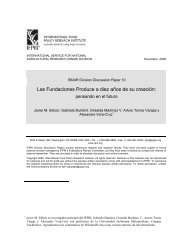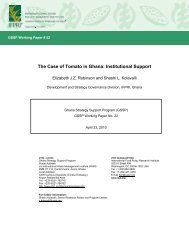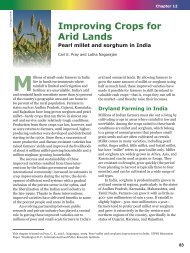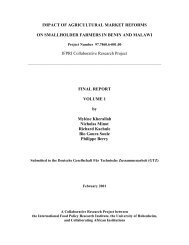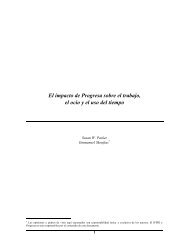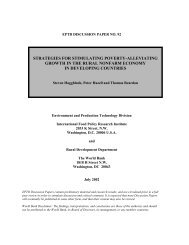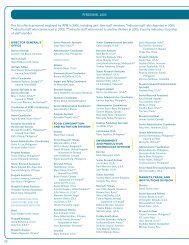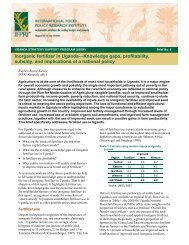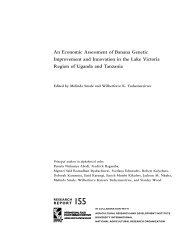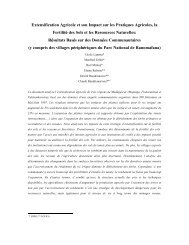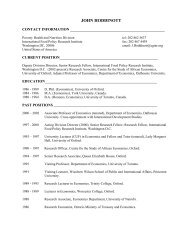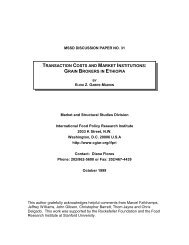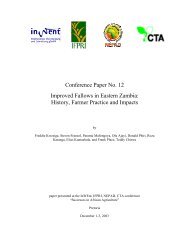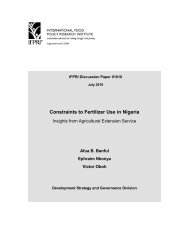An assessment of the causes of malnutrition in Ethiopia: A ...
An assessment of the causes of malnutrition in Ethiopia: A ...
An assessment of the causes of malnutrition in Ethiopia: A ...
Create successful ePaper yourself
Turn your PDF publications into a flip-book with our unique Google optimized e-Paper software.
Figure 4.8: The extended model <strong>of</strong> care.<br />
Source: Engle et al 1999.<br />
Interventions that have <strong>in</strong>creased <strong>the</strong> workload <strong>of</strong> <strong>the</strong> mo<strong>the</strong>r, without <strong>in</strong>creas<strong>in</strong>g <strong>the</strong> amount<br />
<strong>of</strong> <strong>in</strong>come under her control, have had only limited or no effect on children's nutrition status<br />
(Fasil et al. 2000).<br />
As shown <strong>in</strong> Figure 4.8, accord<strong>in</strong>g to <strong>the</strong> extended UNICEF model <strong>of</strong> care, <strong>in</strong> order<br />
for care behaviors to be exhibited, <strong>the</strong> caregiver needs sufficient education, time, and support.<br />
The provision <strong>of</strong> <strong>the</strong>se resources can be considered care for <strong>the</strong> caregiver.<br />
Six major categories <strong>of</strong> resources for care <strong>in</strong>clude: 1) education, knowledge, and<br />
beliefs; 2) health and nutritional status <strong>of</strong> <strong>the</strong> caregiver; 3) mental health, lack <strong>of</strong> stress, and<br />
self-confidence <strong>of</strong> <strong>the</strong> caregiver; 4) autonomy, control <strong>of</strong> resources, and <strong>in</strong>tra-household<br />
allocation; 5) workload and time constra<strong>in</strong>ts; and 6) social support from family members and<br />
community. These aspects are <strong>the</strong> human and organizational resources identified <strong>in</strong> <strong>the</strong><br />
extended model <strong>of</strong> care (Gillespie & Haddad 2003; UNICEF 1989).<br />
Education, knowledge, and beliefs represent <strong>the</strong> capacity <strong>of</strong> <strong>the</strong> caregiver to provide<br />
appropriate care. The physical and mental health (self-confidence and lack <strong>of</strong> stress and<br />
depression) <strong>of</strong> <strong>the</strong> caregiver represents <strong>in</strong>dividual-level factors that facilitate <strong>the</strong> translation <strong>of</strong><br />
capacity to behavior. F<strong>in</strong>ally, autonomy, workload, and social support are facilitat<strong>in</strong>g<br />
conditions <strong>in</strong> <strong>the</strong> family and community.<br />
97



